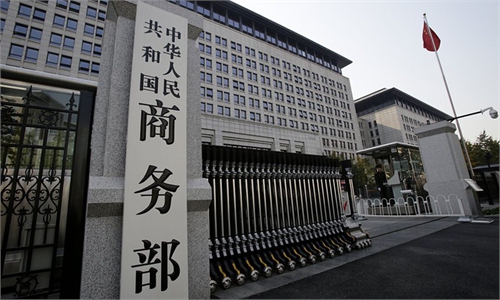US lawmakers request briefing on biotech firm's ties to China, a move to disrupt global drug development

China US
US lawmakers have requested a briefing on a biotechnology firm's connections to China, as the crackdown on Chinese biotech industry intensifies and the bilateral rivalry extends into the biotech industry.
Experts said that recent actions by the US reflect its desire to maintain its leading position in the technology industry through protectionist measures. However, they warn that shutting out Chinese companies could potentially disrupt the drug development supply chain and ultimately hinder innovation by the US in the medical sector.
The US House of Representatives committee on China has asked the FBI and the intelligence community for a briefing on GenScript Biotechnology Co and three subsidiaries to determine their links to China, Reuters reported on Sunday.
GenScript is a pharmaceutical research and manufacturing service provider founded in the US state of New Jersey in 2002, and it is listed on the Hong Kong Stock Exchange. It has sales, manufacturing, and research and development (R&D) activities in China, the US, Europe and the Asia-Pacific, according to its website.
In a letter dated Thursday, US lawmakers said GenScript's work with US companies and the government raises concerns about the intellectual property of US firms and could help improve China's biotech capabilities.
Legend Biotech, one of its three subsidiaries listed on the NASDAQ, saw its shares plunge by nearly 8 percent on Friday, in response to the news.
The move came after the House Committee on Oversight and Accountability on May 15 approved a bill that would restrict business with China's WuXi AppTec, BGI and certain other companies under the pretext of national security concerns.
The bill, if signed into law, would bar federal agencies from contracting with biotech companies deemed of concern. It also would prohibit contracts with companies that use those companies' equipment or services, Reuters reported.
The targeted companies said they do not pose a threat to US national security and the bill would limit competition.
BGI group said in a statement on May 16 that "the bill will limit competition and strengthen the market monopoly in the important field of human genome sequencing by using the legislative process to pick winners and losers."
Bai Wenxi, vice-chairman of the China Enterprise Capital Union, told the Global Times on Sunday that the crackdown on Chinese biopharmaceutical companies is a clear example of trade protectionism.
Bai said that the US is becoming increasingly worried about China's advances in the biopharmaceutical sector and fears that Chinese companies may threaten its dominance in this field.
Chinese biopharmaceutical companies have been rapidly rising in recent years, increasing their R&D investment and improving their production technology, Tian Yun, a veteran economist based in Beijing, told the Global Times on Sunday.
"While there is still a significant gap compared with the US, this gap is gradually narrowing, leading to a certain impact on the leading position of the US in the global pharmaceutical market," Tian said.
As of November 2023, China had more than 10,000 large-scale pharmaceutical industry enterprises, accounting for approximately 4 percent of its total industrial value added. The number of new drugs under research in China has risen to second place globally, according to the Ministry of Industry and Information Technology (MIIT).
Multinational companies are encouraged to establish R&D and innovative drug production bases in China, while domestic enterprises are encouraged to introduce advanced foreign technologies and products through cooperation and technology licensing, the MIIT said.
Cracking down on Chinese biotech companies will only limit collaboration with US firms, affecting the innovation capabilities of the US. This may lead Chinese companies to seek other markets or focus on independent R&D, potentially boosting their innovation capabilities, Lin Xianping a research fellow at Hangzhou City University, told the Global Times on Sunday.



